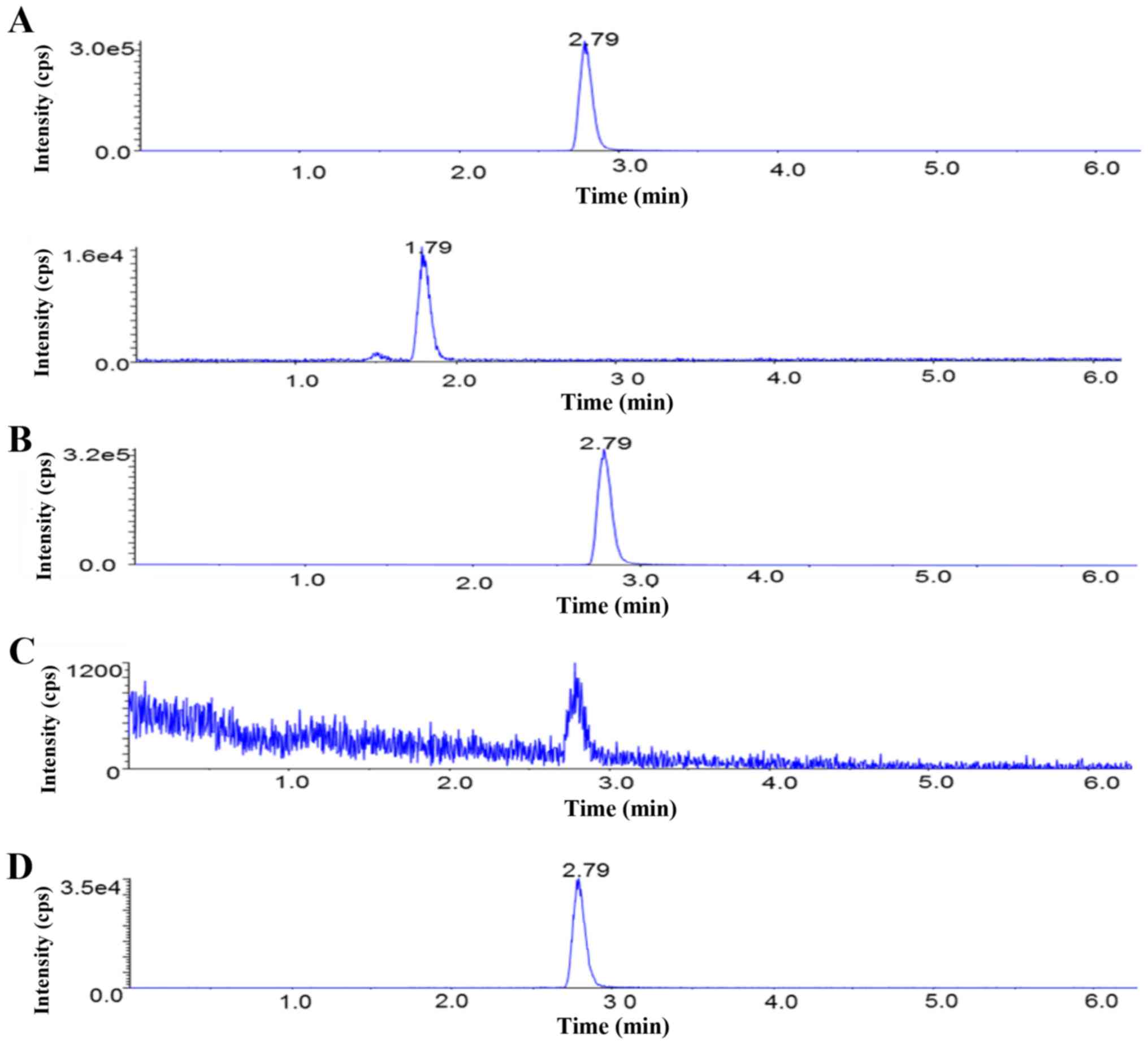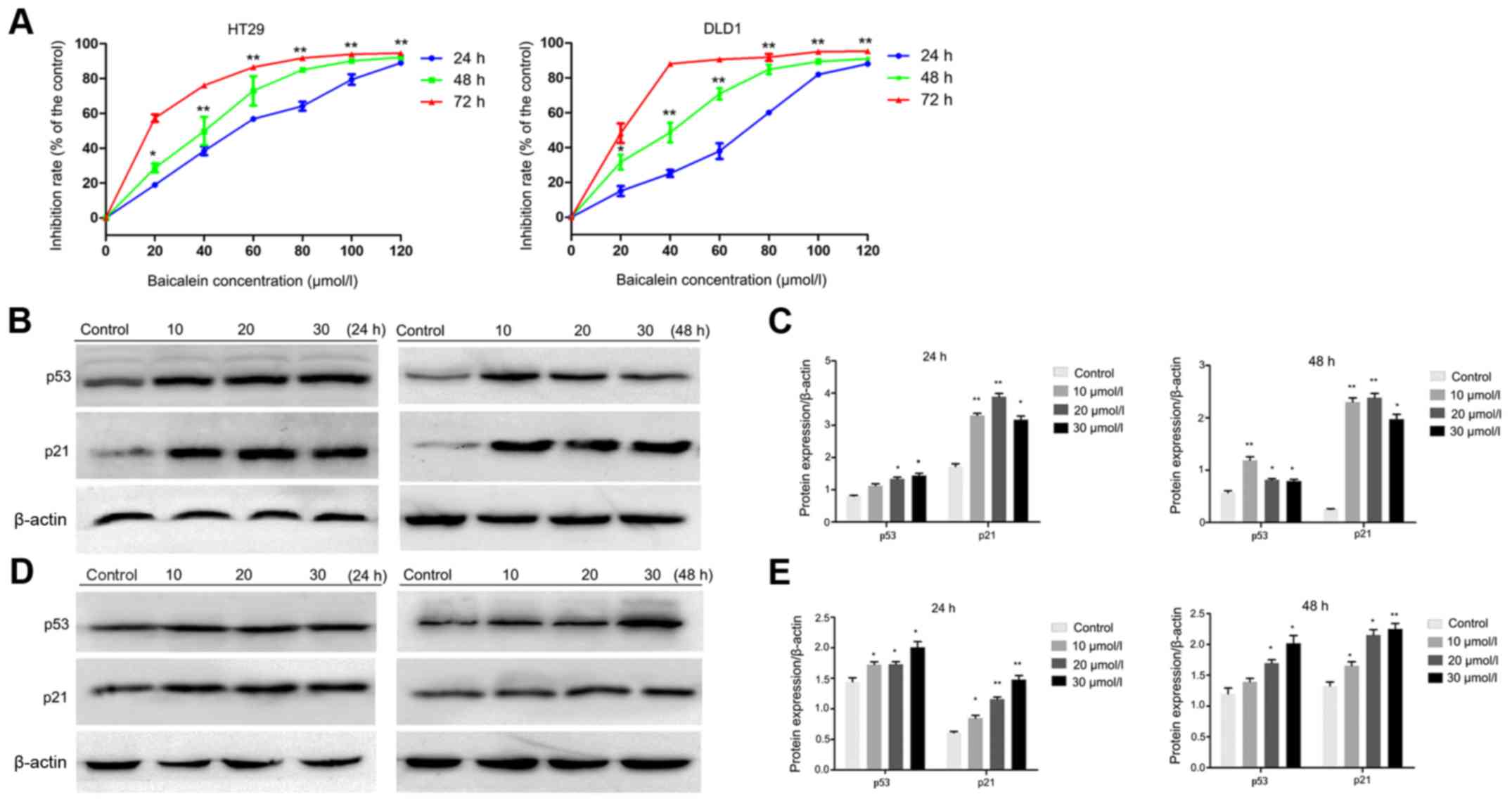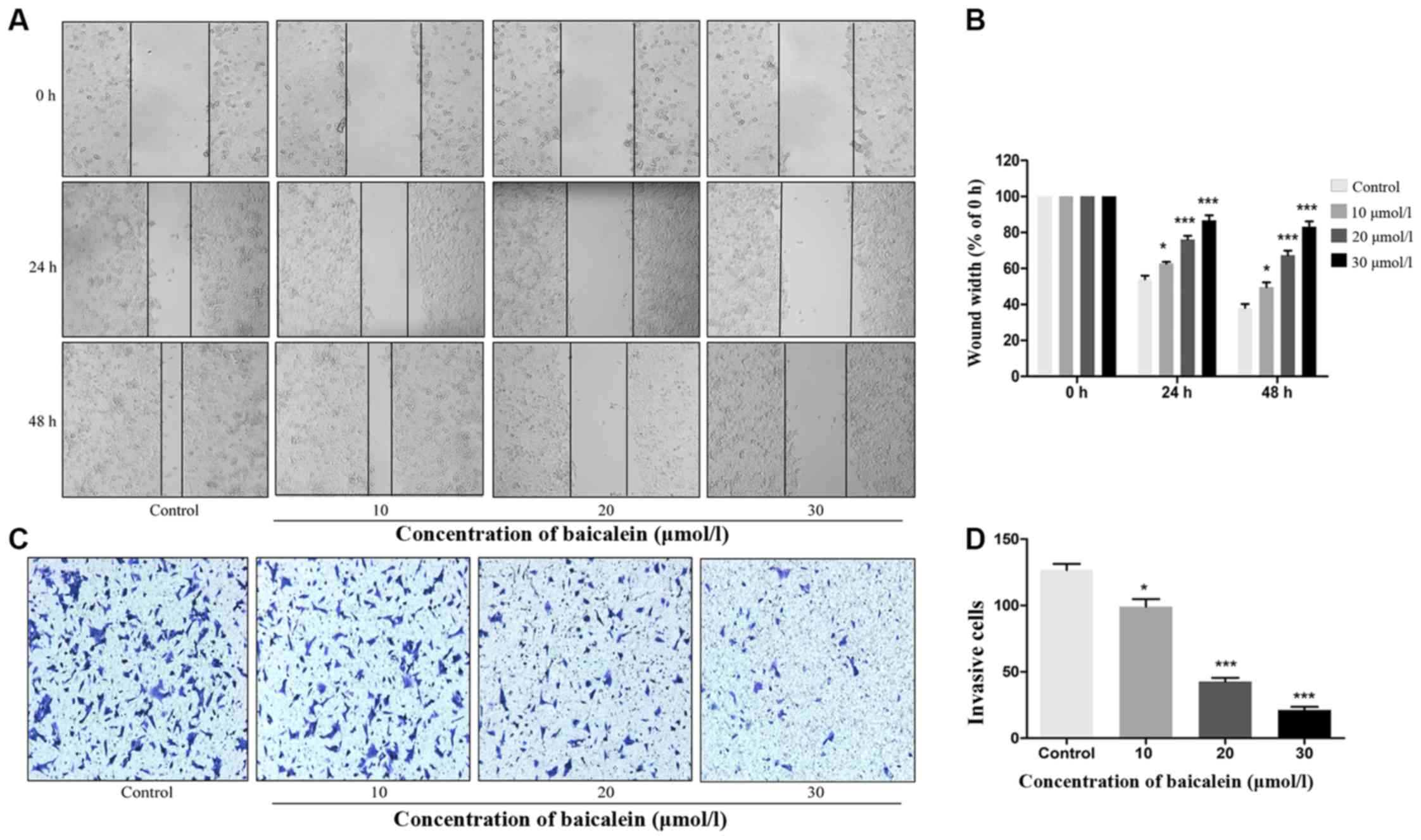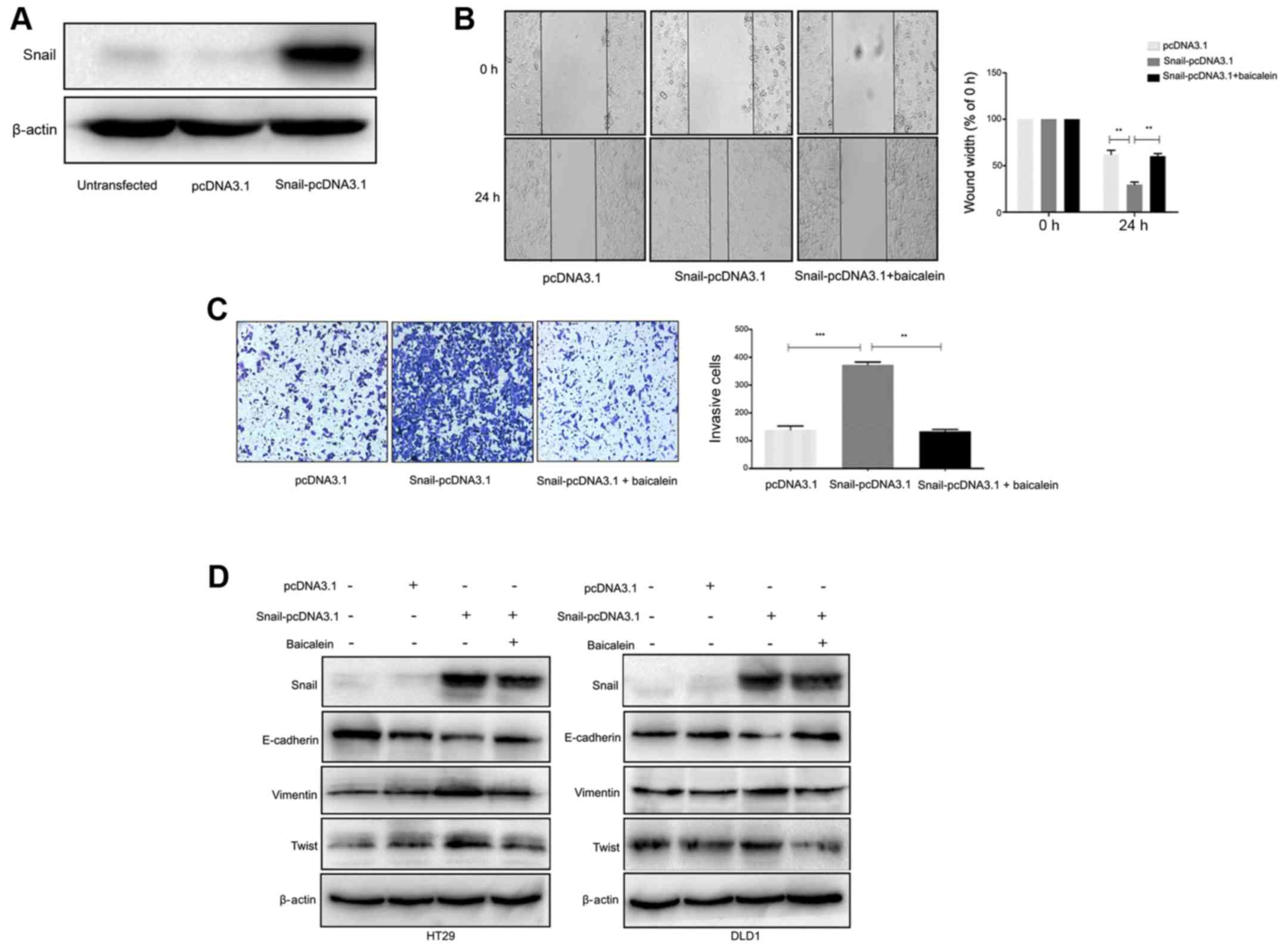|
1
|
Friedman S, Rubin PH, Bodian C, Goldstein
E, Harpaz N and Present DH: Screening and surveillance colonoscopy
in chronic Crohn's colitis. Gastroenterology. 120:820–826. 2001.
View Article : Google Scholar : PubMed/NCBI
|
|
2
|
Ferlay J, Soerjomataram I, Dikshit R, Eser
S, Mathers C, Rebelo M, Parkin DM, Forman D and Bray F: Cancer
incidence and mortality worldwide: Sources, methods and major
patterns in GLOBOCAN 2012. Int J Cancer. 136:E359–E386. 2015.
View Article : Google Scholar : PubMed/NCBI
|
|
3
|
Pan J, Xu Y, Song H, Zhou X, Yao Z and Ji
G: Extracts of Zuo Jin Wan, a traditional Chinese medicine,
phenocopies 5-HTR1D antagonist in attenuating Wnt/β-catenin
signaling in colorectal cancer cells. BMC Complement Altern Med.
17:506–517. 2017. View Article : Google Scholar : PubMed/NCBI
|
|
4
|
Li K, Guo J, Wu Y, Jin D, Jiang H, Liu C
and Qin C: Suppression of YAP by DDP disrupts colon tumor
progression. Oncol Rep. 39:2114–2126. 2018.PubMed/NCBI
|
|
5
|
Ling CQ, Yue XQ and Ling C: Three
advantages of using traditional Chinese medicine to prevent and
treat tumor. J Integr Med. 12:331–335. 2014. View Article : Google Scholar : PubMed/NCBI
|
|
6
|
Yeung KT and Yang J:
Epithelial-mesenchymal transition in tumor metastasis. Mol Oncol.
11:28–39. 2017. View Article : Google Scholar : PubMed/NCBI
|
|
7
|
Tsai JH and Yang J: Epithelial-mesenchymal
plasticity in carcinoma metastasis. Genes Dev. 27:2192–2206. 2013.
View Article : Google Scholar : PubMed/NCBI
|
|
8
|
Singh A and Settleman J: EMT, cancer stem
cells and drug resistance: An emerging axis of evil in the war on
cancer. Oncogene. 29:4741–4751. 2010. View Article : Google Scholar : PubMed/NCBI
|
|
9
|
Cai W, Ye Q and She QB: Loss of 4E-BP1
function induces EMT and promotes cancer cell migration and
invasion via cap-dependent translational activation of snail.
Oncotarget. 5:6015–6027. 2014. View Article : Google Scholar : PubMed/NCBI
|
|
10
|
Zheng H, Shen M, Zha YL, Li W, Wei Y,
Blanco MA, Ren G, Zhou T, Storz P, Wang HY, et al: PKD1
phosphorylation-dependent degradation of SNAIL by SCF-FBXO11
regulates epithelial-mesenchymal transition and metastasis. Cancer
Cell. 26:358–373. 2014. View Article : Google Scholar : PubMed/NCBI
|
|
11
|
Kwon CH, Park HJ, Choi JH, Lee JR, Kim HK,
Jo HJ, Kim HS, Oh N, Song GA and Park DY: Snail and serpinA1
promote tumor progression and predict prognosis in colorectal
cancer. Oncotarget. 6:20312–20326. 2015. View Article : Google Scholar : PubMed/NCBI
|
|
12
|
Bugel SM and Tanguay RL: Multidimensional
chemobehavior analysis of flavonoids and neuroactive compounds in
zebrafish. Toxicol Appl Pharmacol. 344:23–34. 2018. View Article : Google Scholar : PubMed/NCBI
|
|
13
|
Bobe G, Sansbury LB, Albert PS, Cross AJ,
Kahle L, Ashby J, Slattery ML, Caan B, Paskett E, Iber F, et al:
Dietary flavonoids and colorectal adenoma recurrence in the Polyp
Prevention Trial. Cancer Epidemiol Biomarkers Prev. 17:1344–1353.
2008. View Article : Google Scholar : PubMed/NCBI
|
|
14
|
Liu K, Gao H, Wang Q, Wang L, Zhang B, Han
Z, Chen X, Han M and Gao M: Hispidulin suppresses cell growth and
metastasis by targeting PIM1 through JAK2/STAT3 signaling in
colorectal cancer. Cancer Sci. 109:1369–1381. 2018. View Article : Google Scholar : PubMed/NCBI
|
|
15
|
Razak S, Afsar T, Ullah A, Almajwal A,
Alkholief M, Alshamsan A and Jahan S: Taxifolin, a natural
flavonoid interacts with cell cycle regulators causes cell cycle
arrest and causes tumor regression by activating Wnt/β -catenin
signaling pathway. BMC Cancer. 18:1043–1061. 2018. View Article : Google Scholar : PubMed/NCBI
|
|
16
|
Wenzel U, Kuntz S, Brendel MD and Daniel
H: Dietary flavone is a potent apoptosis inducer in human colon
carcinoma cells. Cancer Res. 60:3823–3831. 2000.PubMed/NCBI
|
|
17
|
Dou J, Wang Z, Ma L, Peng B, Mao K, Li C,
Su M, Zhou C and Peng G: Baicalein and baicalin inhibit colon
cancer using two distinct fashions of apoptosis and senescence.
Oncotarget. 9:20089–20102. 2018. View Article : Google Scholar : PubMed/NCBI
|
|
18
|
Wang CZ, Calway TD, Wen XD, Smith J, Yu C,
Wang Y, Mehendale SR and Yuan CS: Hydrophobic flavonoids from
Scutellaria baicalensis induce colorectal cancer cell apoptosis
through a mitochondrial-mediated pathway. Int J Oncol.
42:1018–1026. 2013. View Article : Google Scholar : PubMed/NCBI
|
|
19
|
Huang X, Wu P, Huang F, Xu M, Chen M,
Huang K, Li GP, Xu M, Yao D and Wang L: Baicalin attenuates chronic
hypoxia-induced pulmonary hypertension via adenosine A2A
receptor-induced SDF-1/CXCR4/PI3K/AKT signaling. J Biomed Sci.
24:52–66. 2017. View Article : Google Scholar : PubMed/NCBI
|
|
20
|
Hong GE, Kim JA, Nagappan A, Yumnam S, Lee
HJ, Kim EH, Lee WS, Shin SC, Park HS and Kim GS: Flavonoids
identified from Korean Scutellaria baicalensis Georgi inhibit
inflammatory signaling by suppressing activation of NF- κB and MAPK
in RAW 264.7 cells. Evid Based Complement Alternat Med.
2013:912031–912042. 2013. View Article : Google Scholar : PubMed/NCBI
|
|
21
|
Hussain I, Waheed S, Ahmad KA, Pirog JE
and Syed V: Scutellaria baicalensis targets the hypoxia-inducible
factor-1α and enhances cisplatin efficacy in ovarian cancer. J Cell
Biochem. 119:7515–7524. 2018. View Article : Google Scholar : PubMed/NCBI
|
|
22
|
Duan C, Matsumura S, Kariya N, Nishimura M
and Shimono T: In vitro antibacterial activities of Scutellaria
baicalensis Georgi against cariogenic bacterial. Pediatr Dent J.
17:58–64. 2017. View Article : Google Scholar
|
|
23
|
Kim SJ, Kim HJ, Kim HR, Lee SH, Cho SD,
Choi CS, Nam JS and Jung JY: Antitumor actions of baicalein and
wogonin in HT-29 human colorectal cancer cells. Mol Med Rep.
6:1443–1449. 2012. View Article : Google Scholar : PubMed/NCBI
|
|
24
|
Chen Z, Hou R, Gao S, Song D and Feng Y:
Baicalein inhibits proliferation activity of human colorectal
cancer cells HCT116 through downregulation of Ezrin. Cell Physiol
Biochem. 49:2035–2046. 2018. View Article : Google Scholar : PubMed/NCBI
|
|
25
|
Rui X, Yan XI and Zhang K: Baicalein
inhibits the migration and invasion of colorectal cancer cells via
suppression of the AKT signaling pathway. Oncol Lett. 11:685–688.
2016. View Article : Google Scholar : PubMed/NCBI
|
|
26
|
Chai Y, Xu J and Yan B: The
anti-metastatic effect of baicalein on colorectal cancer. Oncol
Rep. 37:2317–2323. 2017. View Article : Google Scholar : PubMed/NCBI
|
|
27
|
Cui XB, Qian XC, Huang P, Zhang YX, Li JS,
Yang GM and Cai BC: Simultaneous determination of ten flavonoids of
crude and wine-processed Radix Scutellariae aqueous extracts in rat
plasma by UPLC-ESI-MS/MS and its application to a comparative
pharmacokinetic study. Biomed Chromatogr. 29:1112–1123. 2015.
View Article : Google Scholar : PubMed/NCBI
|
|
28
|
Zhang Y, Zhang Z and Song R: The influence
of compatibility of rhubarb and radix scutellariae on the
pharmacokinetics of anthraquinones and flavonoids in rat plasma.
Eur J Drug Metab Pharmacokinet. 43:291–300. 2018. View Article : Google Scholar : PubMed/NCBI
|
|
29
|
Aoki T, Nishimura M, Kataoka H, Ishibashi
R, Nozaki K and Miyamoto S: Complementary inhibition of cerebral
aneurysm formation by eNOS and nNOS. Lab Invest. 91:619–626. 2011.
View Article : Google Scholar : PubMed/NCBI
|
|
30
|
Duan j, Song Z, Qi M, Bai X, Wang J, Zhang
Y, Zou X, Guo Q and Wan P: Increased autophagy levels mediate
cisplatin resistance in cisplatin-resistant cells while also
rendering them vulnerable to autophagy induction. BioMed Res Int.
10:1736738–1736748. 2018.
|
|
31
|
Qiu Y, Li C, Wang Q, Zeng X and Ji P:
Tanshinone IIA induces cell death via Beclin-1-dependent autophagy
in oral squamous cell carcinoma SCC-9 cell line. Cancer Med.
7:397–407. 2018. View Article : Google Scholar : PubMed/NCBI
|
|
32
|
Zhang Y, Yan W and Chen X: Mutant p53
disrupts MCF-10A cell polarity in three-dimensional culture via
epithelial-to-mesenchymal transitions. J Biol Chem.
286:16218–16228. 2011. View Article : Google Scholar : PubMed/NCBI
|
|
33
|
Chang CJ, Chao CH, Xia W, Yang JY, Xiong
Y, Li CW, Yu WH, Rehman SK, Hsu JL, Lee HH, et al: p53 regulates
epithelial-mesenchymal transition and stem cell properties through
modulating miRNAs. Nat Cell Biol. 13:317–323. 2011. View Article : Google Scholar : PubMed/NCBI
|
|
34
|
Fan F, Samuel S, Evans KW, Lu J, Xia L,
Zhou Y, Sceusi E, Tozzi F, Ye XC, Mani SA, et al: Overexpression of
snail induces epithelial-mesenchymal transition and a cancer stem
cell-like phenotype in human colorectal cancer cells. Cancer Med.
1:5–16. 2012. View
Article : Google Scholar : PubMed/NCBI
|
|
35
|
Sang Y, Cheng C, Zeng YX and Kang T: Snail
promotes metastasis of nasopharyngeal carcinoma partly by
down-regulating TEL2. Cancer Commun Lond. 38:58–68. 2018.
View Article : Google Scholar : PubMed/NCBI
|
|
36
|
Bermudezsoto MJ, Tomasbarberan FA and
Garciaconesa M: Stability of polyphenols in chokeberry (Aronia
melanocarpa) subjected to in vitro gastric and pancreatic
digestion. Food Chem. 102:865–874. 2007. View Article : Google Scholar
|
|
37
|
Sankaranarayanan R, Valiveti CK, Kumar DR,
Van slambrouck S, Kesharwani S, Seefeldt T, Scaria J, Tummala H and
Bhat G: Van slambrouck S, Kesharwani SS, Seefeldt T, Scaria J,
Tummala H and Bhat GJ: The flavonoid metabolite 2, 4,
6-Trihydroxybenzoic acid is a CDK inhibitor and an
anti-proliferative agent: A potential role in cancer prevention.
Cancers (Basel). 11:2–18. 2019. View Article : Google Scholar
|
|
38
|
Gao K, Xu A, Krul C, Venema K, Liu Y, Niu
Y, Lu J, Bensoussan L, Seeram NP, Heber D, et al: Of the major
phenolic acids formed during human microbial fermentation of tea,
citrus, and soy flavonoid supplements, only
3,4-dihydroxyphenylacetic acid has antiproliferative activity. J
Nutr. 136:52–57. 2006. View Article : Google Scholar : PubMed/NCBI
|
|
39
|
Du LY, Qian DW, Shang EX, Liu P, Jiang S,
Guo JM, Su SL, Duan JA, Xu J and Zhao M: UPLC-Q-TOF/MS-based
screening and identification of the main flavonoids and their
metabolites in rat bile, urine and feces after oral administration
of Scutellaria baicalensis extract. J Ethnopharmacol. 169:156–162.
2015. View Article : Google Scholar : PubMed/NCBI
|
|
40
|
Park KI, Park HS, Kang SR, Nagappan A, Lee
DH, Kim JA, Han DY and Kim GS: Korean Scutellaria baicalensis water
extract inhibits cell cycle G1/S transition by suppressing cyclin
D1 expression and matrix-metalloproteinase-2 activity in human lung
cancer cells. J Ethnopharmacol. 133:634–641. 2011. View Article : Google Scholar : PubMed/NCBI
|
|
41
|
Zhang Y, Song L, Cai L, Wei R, Hu H and
Jin W: Effects of baicalein on apoptosis, cell cycle arrest,
migration and invasion of osteosarcoma cells. Food Chem Toxicol.
53:325–333. 2013. View Article : Google Scholar : PubMed/NCBI
|
|
42
|
Kowalczyk E, Krzesiński P, Kura M,
Niedworok J, Kowalski J and Błaszczyk J: Pharmacological effects of
flavonoids from Scutellaria baicalensis. Przegl Lek. 63:95–96.
2006.(In Polish). PubMed/NCBI
|
|
43
|
Chao C, Saito S, Kang J, Anderson CW,
Appella E and Xu Y: p53 transcriptional activity is essential for
p53-dependent apoptosis following DNA damage. EMBO J. 19:4967–4975.
2000. View Article : Google Scholar : PubMed/NCBI
|
|
44
|
Yilmaz M and Christofori G: EMT, the
cytoskeleton, and cancer cell invasion. Cancer Metastasis Rev.
28:15–33. 2009. View Article : Google Scholar : PubMed/NCBI
|
|
45
|
Liu H, Dong Y, Gao Y, Du Z, Wang Y, Cheng
P, Chen A and Huang H: The fascinating effects of baicalein on
cancer: A review. Int J Mol Sci. 17:1681–1699. 2016. View Article : Google Scholar :
|



















